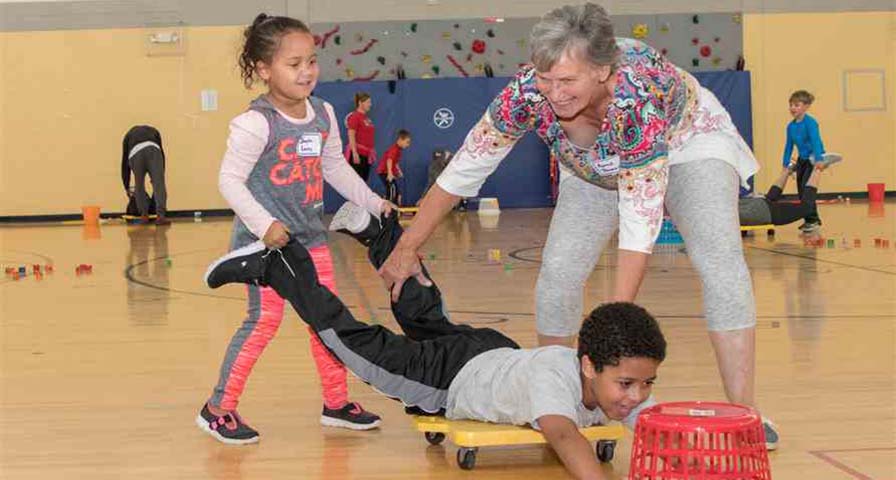Originally published on Jan. 17, 2020 in the Johnson City Press.
By Brandon Paykamian
Physical education may be directly related to how students perform academically, according to a local teacher and researcher at Milligan College.
And as state testing continues to be the norm in American public schools, local educators are taking a closer look at the main factors and variables that affect students’ test scores and academic performance.
 “Body movement serves as a method to support the brain and aids executive function, increased cognition and retrieval of stored information,” Leslie Hanneken, associate professor of human performance and exercise science at Milligan, said.
“Body movement serves as a method to support the brain and aids executive function, increased cognition and retrieval of stored information,” Leslie Hanneken, associate professor of human performance and exercise science at Milligan, said.
Hanneken’s current research, which she will present in a Jan. 27 lecture titled “Quality Physical Education: A Positive Approach to Cognition” at Detrick Hall, focuses on the relationship between the body and mind. Her research points to more evidence that “positive health behaviors are essential to increase academic performance.”
Derek Murphy, a physical education teacher at Fairmont Elementary School, said he believes his courses help bolster student performance.
“Just getting the blood flowing in the body and getting more oxygen to the brain gets those synapses going, so it’s obviously going to improve their comprehension of different subject matters in their classrooms,” he said Thursday. “A lot of teachers appreciate having PE on a Friday. Friday is typically a testing day for them — spelling tests or comprehensive tests for the week — and they often make comments that their students do better because they’ve had PE Friday going into their tests.
“They’re more focused. They seem to do better.”
Fairmont has previously been named a National Title I Distinguished School for its positive educational advances and exceptional student performance. It’s one of two schools in Tennessee and one of 100 across the nation to earn the honor.
Whether it’s structured physical education courses or recess, Murphy said he believes staying active is an important part of Fairmont’s academic success. Recess can encourage imagination, and structured PE courses teach students how to be physically literate.
“That connects to what they’re doing in the classroom,” Murphy said. “There are a lot of times we do stuff in the classroom that reinforces some of the skills they’re working on in their (other) classrooms, whether it be math, language arts or science…
“We sometimes incorporate some of that into my lessons. When they’re physically active doing those things, they gain a little deeper comprehension of it because of the activeness that’s associated with the content they’re working on.”
But it isn’t just about “getting the blood flowing” and making mental connections to academic material. Murphy said activities like rock climbing can encourage problem-solving, as well.
“It’s kind of like a puzzle; they have to work their way through,” he said. “And a lot of the kids who have a hard time focusing do the best on that because they’re tuned in to what they’re doing.”
Murphy said he has noticed the positive impact of physical education at Fairmont on a day-to-day basis since he began teaching there in 2002. He hopes policymakers will consider research like Hanneken’s when making decisions about physical education.
“I hope that the people who make the laws and the regulations continue to see that PE is just as important to learning as the other academic subjects,” he said.
Seeking IHT Spirit System information?




